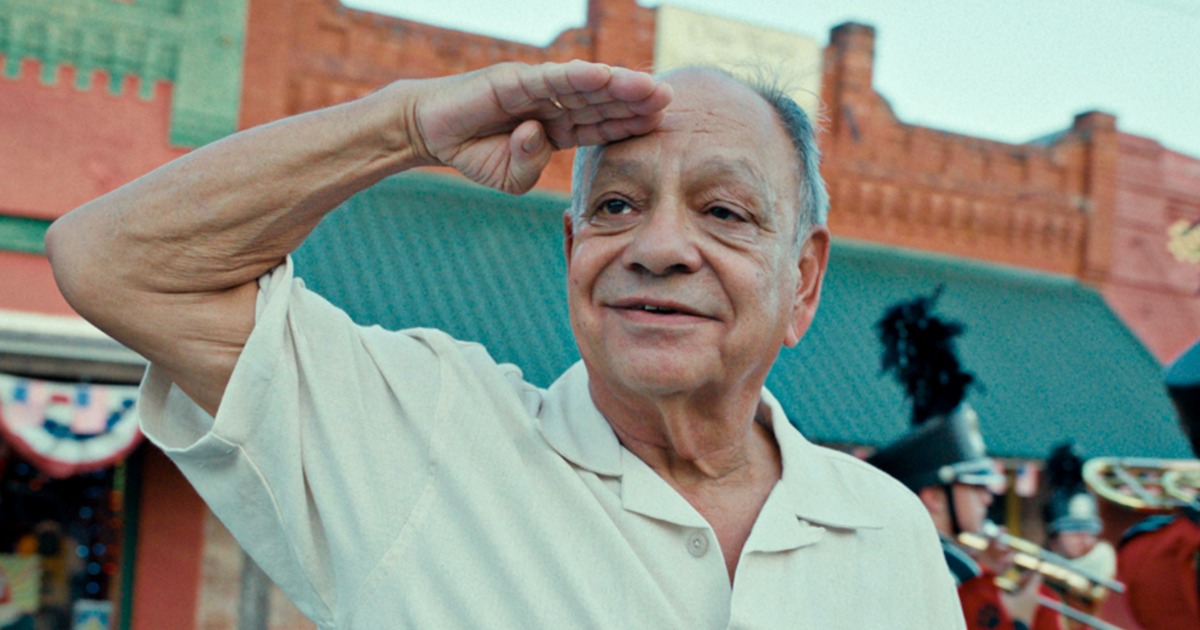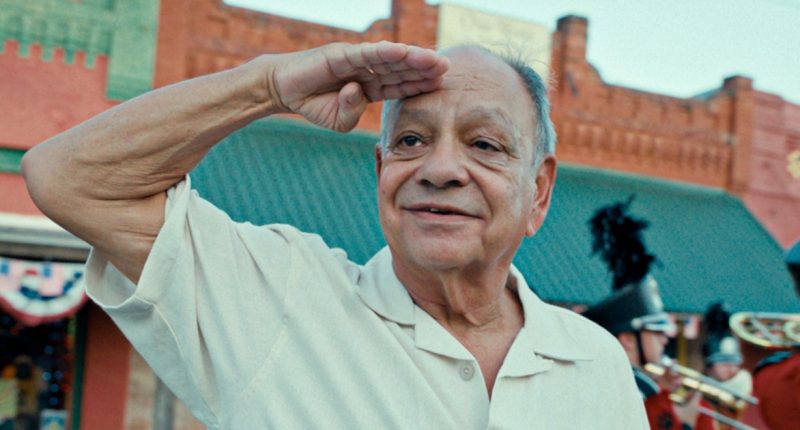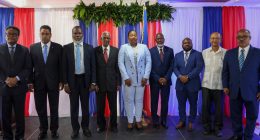
Comedian, actor and activist Cheech Marin says he doesn’t let rules govern his life. But for his new role in “The Long Game,” an underdog sports movie about five Mexican American teens who win the Texas high school golf championship in 1957 despite the racism they faced at the time, Marin found inspiration in the rules that guided his father.
“When my dad came back from World War II, the whole world was the Navy because he knew exactly what to do in that world,” Marin said in an interview with NBC News, describing the rules that his father followed to get through life after the military.
“When he came out of the service, he was bewildered because he wasn’t accepted in a lot of employable positions,” Marin said about his Mexican American father. “And he became a policeman, which was all rules. So he was safe in that environment.”
The movie “The Long Game” tells the real-life story of J.B. Peña (played by actor Jay Hernandez), a World War II veteran and school district superintendent who’s rejected from membership at the whites-only San Felipe Country Club in Del Rio, Texas, because he’s Mexican American. He goes on, however, to form a high school golf team, the Mustangs, for the Mexican American teens who were caddies at the whites-only club and had fallen in love with the sport. The golf team went on to win the high school championship.
Marin plays Pollo, a World War I veteran who’s a groundskeeper at the country club — where he, like Peña, could not have been a member because of his ethnicity.
In the film also starring Dennis Quaid, viewers see Marin wearing a large cage over his head to protect himself from stray golf balls on the course. While the cage may look like a comedic prop, Marin said it symbolizes the “shell shock” or trauma that veterans like his father and other Mexican Americans carried as civilians once they came back.
“I kind of based it on anybody who comes out of a World War or any kind of big war. They come out of that traumatized,” he said, reflecting on his character in the movie. “This cage that he wears is his armor against the outside world.”
In the movie, Pollo tells Peña that when he was serving in World War I, the military did not give him a gas mask in the trenches. But, Pollo tells Peña, you still have to “play as it lies,” a golf expression that means you have to play the ball wherever it falls — and deal with current realities.
“He has to deal with not only having had mustard gas, which really affects you, but how he fits into his own hometown,” Marin said, dissecting his character. “He’s now a stranger in his own hometown. So that kind of affects how he sees the world, how he hides from it and then, how he comes out every once in a while.”
“The Long Game,” Marin said, is a story about being accepted. And the five Mexican American teens’ victory is a symbol of earning that respect.
“The first year they put a team together, they won the state championship at the course that they weren’t allowed to play on as players,” Marin said. “So you saw the change happening right then and there.”
Off-screen, fans know Marin as a counterculture icon and half of the iconic comedic duo Cheech and Chong, along with his roles in movies such as “Up in Smoke” (1978) and “Born in East L.A.” (1987) and in the TV show “Nash Bridges,” among others.
When asked to look back on the classic comedies and shows that helped make his career, Marin said there are many more Latino stories now than before.
“You can’t turn on TV today without seeing a lot of Latino characters in every show that you watch. And maybe some of our biggest stars are Latinos, especially in music,” he said. “And so, we made a lot of progress, and there’s still progress to be made.”
One area where Marin has pushed for greater acceptance and visibility is the arts: A big patron and collector, especially of Chicano art, Marin partnered in 2022 with the Riverside Art Museum and the city of Riverside in California to create a permanent museum space for Chicano art. The museum has drawn praise for its focus on U.S. Latino art.
Marin said that while Latinos are making breakthroughs as a community, Hispanics are not “really accepted into the mainstream” until they have their own museum.
“One of the people I talked to in the museum world when we started [the museum space] said, ‘We’ll come back and check in with you in about 20 years, ’cause that’s the least amount of time that you have to put in order to be accepted as official,’” Marin said. “I’m going to stay alive just for that purpose.”
For more from NBC Latino, sign up for our weekly newsletter.
Source: | This article originally belongs to Nbcnews.com









